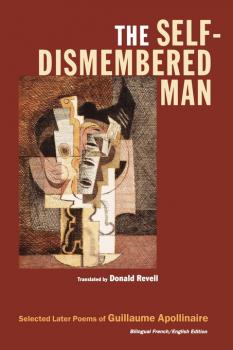Guillaume Apollinaire
Список книг автора Guillaume ApollinaireL'hérésiarque et Cie
"L'hérésiarque et Cie", de Guillaume Apollinaire. Publié par Good Press. Good Press publie un large éventail d'ouvrages, où sont inclus tous les genres littéraires. Les choix éditoriaux des éditions Good Press ne se limitent pas aux grands classiques, à la fiction et à la non-fiction littéraire. Ils englobent également les trésors, oubliés ou à découvrir, de la littérature mondiale. Nous publions les livres qu'il faut avoir lu. Chaque ouvrage publié par Good Press a été édité et mis en forme avec soin, afin d'optimiser le confort de lecture, sur liseuse ou tablette. Notre mission est d'élaborer des e-books faciles à utiliser, accessibles au plus grand nombre, dans un format numérique de qualité supérieure.
Le flâneur des deux rives
"Le flâneur des deux rives", de Guillaume Apollinaire. Publié par Good Press. Good Press publie un large éventail d'ouvrages, où sont inclus tous les genres littéraires. Les choix éditoriaux des éditions Good Press ne se limitent pas aux grands classiques, à la fiction et à la non-fiction littéraire. Ils englobent également les trésors, oubliés ou à découvrir, de la littérature mondiale. Nous publions les livres qu'il faut avoir lu. Chaque ouvrage publié par Good Press a été édité et mis en forme avec soin, afin d'optimiser le confort de lecture, sur liseuse ou tablette. Notre mission est d'élaborer des e-books faciles à utiliser, accessibles au plus grand nombre, dans un format numérique de qualité supérieure.
Les trois Don Juan
"Les trois Don Juan", de Guillaume Apollinaire. Publié par Good Press. Good Press publie un large éventail d'ouvrages, où sont inclus tous les genres littéraires. Les choix éditoriaux des éditions Good Press ne se limitent pas aux grands classiques, à la fiction et à la non-fiction littéraire. Ils englobent également les trésors, oubliés ou à découvrir, de la littérature mondiale. Nous publions les livres qu'il faut avoir lu. Chaque ouvrage publié par Good Press a été édité et mis en forme avec soin, afin d'optimiser le confort de lecture, sur liseuse ou tablette. Notre mission est d'élaborer des e-books faciles à utiliser, accessibles au plus grand nombre, dans un format numérique de qualité supérieure.
Alcools
<P>Alcools, first published in 1913 and one of the few indispensable books of twentieth- century poetry, provides a key to the century's history and consciousness. Champion of «cubism», Guillaume Apollinaire (1880-1918) fashions in verse the sonic equivalent of what Picasso accomplishes in his cubist works: simultaneity. Apollinaire has been so influential that without him there would have been no New York School of poetry and no Beat Movement. This new translation reveals his complex, beautiful, and wholly contemporary poetry. Printed with the original French on facing pages, this is the only version of this seminal work of French Modernism currently available in the United States.</P>
The Self-Dismembered Man
<P>Guillaume Apollinaire's final years exactly coincided with the clamorous advent of European Modernism and with the cataclysms of WWI. In The Self-Dismembered Man, poet Donald Revell offers new English translations of the most powerful poems Apollinaire wrote during those years: poems of nascent surrealism, of combat and of war-weariness. Here, too, is Apollinaire's last testament, «The Pretty Redhead,» a farewell to the epoch that he—as poet, convict, art-critic, artilleryman and boulevardier—did so much to conjure and sustain until his death on Armistice Day in 1918. Readers of Apollinaire's more familiar early work, Alcools (Wesleyan, 1995), will find here a darker and yet more tender poet, a poet of the broken world who shares entirely the world's catastrophe even as he praises to the end its glamour and its strange innocence. This English translation, facing the original French, illuminates Apollinaire's crucial and continuing influence on the European and American avant-garde. The volume includes a short translator's preface.</P>
Cubism
Les Demoiselles d’Avignon: five young women that changed modern art forever. Faces seen simultaneously from the front and in profile, angular bodies whose once-voluptuous feminine forms disappear behind asymmetric lines – with this painting, Picasso revolutionised the entire history of art. Cubism was thus born in 1907. Transforming natural forms into cylinders and cubes, painters like Juan Gris and Robert Delaunay, driven by Braque and Picasso, imposed a new vision upon the world, in total opposition to the principles of the Impressionists. Spreading quickly in Europe, Cubism developed rapidly in successive phases that brought art history into the 20th century, which would be filled with dramatic movements, from the Futurism of Boccioni to the abstraction of Kandinsky, from the Suprematism of Malevich and the Constructivism of Tatlin. Linking the core text of Guillaume Apollinaire with the studies of Dr Dorothea Eimert, this work offers a new interpretation of modernity’s crucial moment, and permits the reader to rediscover, through their biographies, the principal representatives of the movement.









